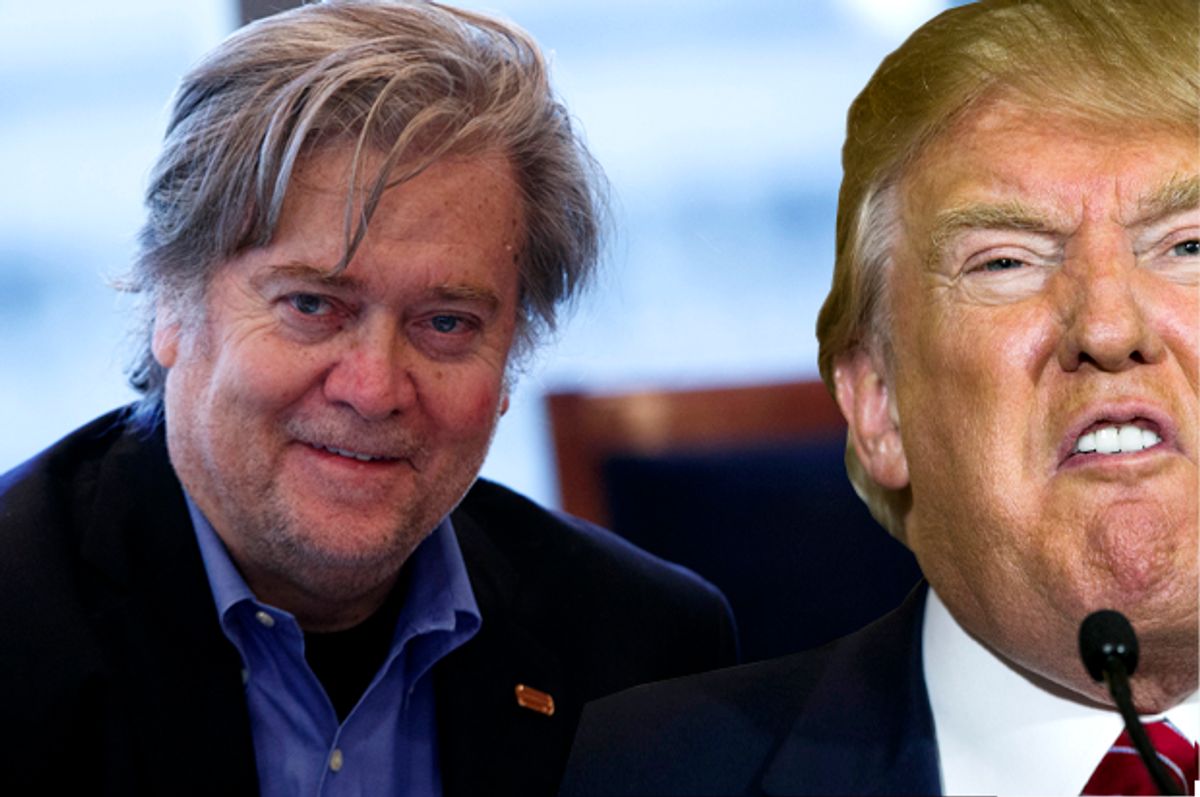It feels almost ridiculous to focus on comparatively mundane governing affairs just days out from one of the most radicalizing and consequential political events of this generation. But with President-elect Donald Trump just a couple of weeks away from taking over the machinery of government, we have to consider how he will exert his soon-to-be potent will.
Trump’s relationship with Congress will be complicated: It is controlled by his own party, but Trump’s authoritarian personality and grab-bag policy agenda will not necessarily mesh well with the conservative purists and agenda-driven establishmentarians who make up the GOP leadership.
There will be points of conflict, and how those conflicts are resolved will depend largely on Trump. The problem is that we are in a dark, uncertain place in which literally zero people have any concrete notion of how the next president will behave in office — including Trump himself.
There are any number of theories that, owing to the vast uncertainty, can be taken as plausible. Trump is phenomenally ignorant of how government works and how public policy is formed, and he has shown little capacity to study, learn or even focus long enough on a single issue to form a coherent philosophy. Thus, it seems at least possible that he could just wash his hands entirely of policymaking and leave everything to House Speaker Paul Ryan and Senate Majority Leader Mitch McConnell, thus relegating himself to the role of an ornately gilded rubber stamp.
But, then again, we also know that Trump loves to fight with everyone and, wherever possible, assert his dominance. To the extent that Trump’s policy agenda can be taken seriously, it has some items in it that will bump up hard against conservative dogma (particularly those that are central to his “populist” effect) like massive infrastructure spending. If he’s serious about getting those infrastructure projects approved, that will require putting a considerable amount of pressure on the Republican leadership — on Ryan in particular, who can’t abide by any public spending that isn’t on the military.
Again, I don’t know which Trump is going to be in the Oval Office in 2017. But there are a few clues that we can point to and some others to look for.
Let’s consider the complicated political dynamic facing the Republicans in Congress. The president they have to deal with is massively unpopular with the general public, which may embolden them to resist him. At the same time, Trump defeated Democratic nominee Hillary Clinton in several blue states, which will give him a lot of clout within the GOP rank and file.
Trump will be feeling like he has a mandate, and he’ll have allies outside Congress working to back him and undermine his opponents. The Washington Post has reported that Great America PAC, which spent large sums electing Trump this year, is now turning its focus toward making sure the Trumpian agenda is enacted.
But those efforts will be only as effective as Trump’s willingness to fight. To get a sense of his thinking on this front, keep an eye on whom he taps for his White House chief of staff. Per media reports, there are two leading candidates for the position: Republican National Committee chairman Reince Priebus and Trump campaign chairman Steve Bannon. Priebus is the physical personification of establishment Republicans and a close ally of fellow Wisconsinite Paul Ryan. Steve Bannon is and was the head of a white nationalist conservative website that espouses a comically vehement hatred of the speaker.
The health of the relationship that emerges between Trump and Congress will determine how effectively they’re able to do violence to the Obama record. That relationship will also define the legislative agenda that arises from the ashes of the legislative arson. At this point we can only guess because no one has the foggiest idea of what the person the nation elected as president intends to do.

Shares